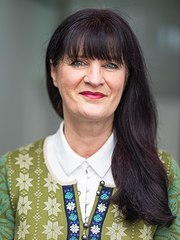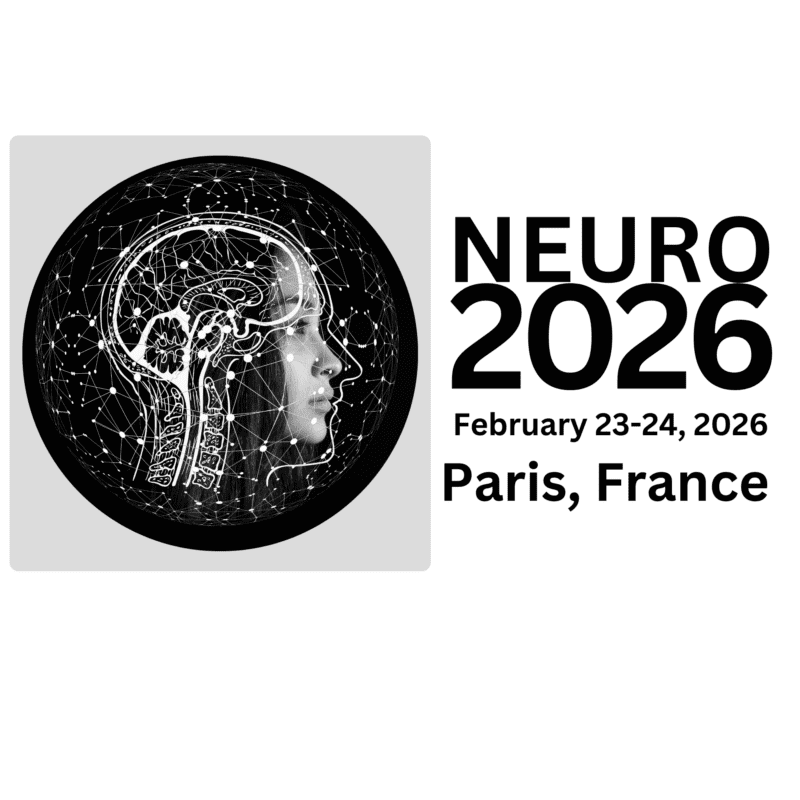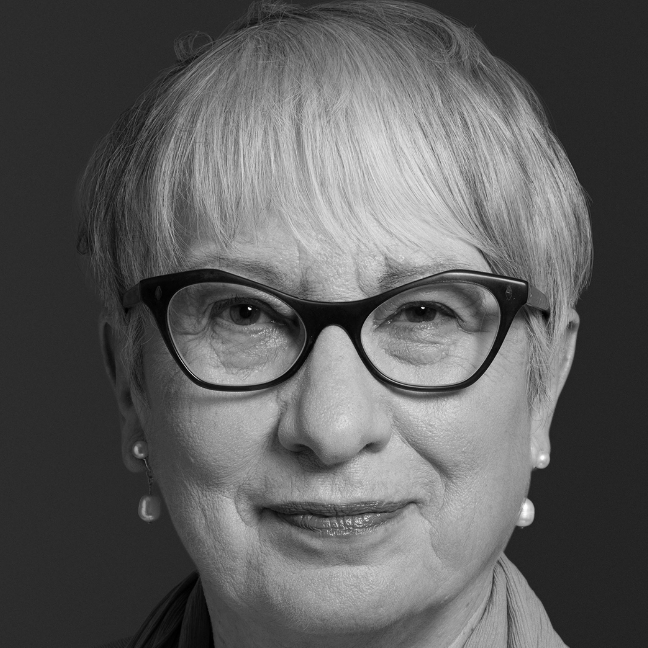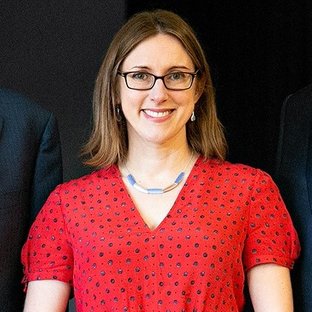Top Influential Psychologists in Europe for 2024-2025
Psychology, as a discipline, continues to evolve and address pressing issues related to mental health, well-being, and social dynamics. Europe is home to some of the world’s leading psychologists, who are shaping both academic research and public discourse. In 2024-2025, several European psychologists stand out for their contributions to various fields such as cognitive psychology, behavioral economics, mental health, and neuroscience. Below is a look at some of the most influential psychologists in Europe today. More information at Neurology Congress 2025: www.neurologyconf.com
1. Uta Frith
United Kingdom
A pioneer in developmental psychology, Uta Frith is best known for her work on autism and dyslexia. Her research on the theory of mind in autistic individuals has revolutionized our understanding of social cognitive deficits. Frith continues to be a key figure in shaping the future of developmental and cognitive neuroscience.
Institution: University College London
2. Simon Baron-Cohen
United Kingdom
Simon Baron-Cohen, a professor of developmental psychopathology at the University of Cambridge, is recognized globally for his work on autism and cognitive sex differences. His “empathizing-systemizing” theory has contributed to the understanding of psychological gender differences.
Institution: University of Cambridge
Biography: The Autism Research Centre (ARC), of which I am Director, has 12 programs of research, all focusing on autism. 6 of these are in basic research: (a) Perception and Cognition; (b) Neuroscience; (c) Genetics and Environmental; (d) Hormones; (e) Epidemiology; (f) Synaesthesia. The other 6 programs are in applied research: (g) Screening and Diagnosis; (h) Employment; (i) Education; (j) Criminal Justice; (k) Physical Health; and (l) Mental Health. These are described on the Autism Research Centre website (www.autismresearchcentre.com). Support comes from the Wellcome Trust, the Simons Foundation, the Rosetrees Trust, NIHR, the Templeton World Charity Foundation, and the Autism Centre of Excellence (ACE) at Cambridge, among other sources.
3. Daniela Schiller
Germany/Israel
Daniela Schiller is an influential neuroscientist and psychologist whose work focuses on the neural mechanisms of emotional memory. She is renowned for her research on how memories are recalled and altered, which has vast implications for treating trauma and PTSD.
Institution: Icahn School of Medicine at Mount Sinai
Biography: Dr. Schiller’s line of research focuses on the neural mechanisms underlying emotional control. Because our environment is constantly changing, our learned emotional responses must be continuously updated to reflect current circumstances appropriately. Understanding the neural mechanisms that make such emotional flexibility may shed light on the impairments leading to anxiety disorders and may also promote new forms of treatment.
4. Jaan Valsiner
Estonia
Jaan Valsiner is known for his contributions to cultural psychology, examining how human development is influenced by cultural contexts. His work has bridged gaps between psychology, anthropology, and philosophy.
Institution: Aalborg University
Biography: Jaan Valsiner, born in Estonia, is a cultural psychologist with a consistently developmental axiomatic base, resulting in Cultural Psychology of Semiotic Dynamics. Back in 1995 he founded the Sage journal, Culture & Psychology and also edits Integrative Psychological & Behavioral Science (Springer). He has been awarded major research prizes in Europe– the Alexander von Humboldt Prize of 1995 and the Hans-Kilian-Preis of 2017. As part of his credo for building new post-cognitive psychology on an international and trans-cultural basis, he has been a visiting professor in many countries al over the World. Since 2017 he is a Foreign Member of the Estonian Academy of Sciences. He is currently also Professor of Cultural Psychology at Aalborg University in Denmark, and Visiting Professor, Federal University of Bahia, Brasil
5. Chris Frith
United Kingdom
A leading cognitive neuroscientist, Chris Frith has made significant contributions to our understanding of the neural basis of social cognition, particularly in the context of schizophrenia. His work continues to inform research on brain imaging and mental disorders.
Institution: Wellcome Trust Centre for Neuroimaging
Biography: Chris Frith is a neuropsychologist whose experiments have helped us neuroimaging techniques, he used these to study the relationship between the mind and the brain, and in particular, the neural basis of consciousness and free will.
He has also been exploring the uniquely human ability to attribute mental states to one’s and others and to share conscious experiences. This ability to reflect on and report our experiences is crucial for learning from others and developing culture.
A Fellow of the Academy of Medical Sciences from 1999, Chris was elected a Fellow of the British Academy in 2008 and an Honorary Fellow of the British Science Association in 2010. He has won numerous medals and awards for his significant contributions to neuroscience, including the 2009 European Latsis Prize alongside his wife, the developmental psychologist Uta Frith, also a Fellow of the Royal Society.
6. Tania Singer
Germany
Tania Singer is a social neuroscientist known for her work on empathy and compassion. She has conducted groundbreaking research on the brain mechanisms behind social emotions and altruistic behavior, which has profound implications for social and educational policy.
Institution: Max Planck Institute for Human Cognitive and Brain Sciences
Biography: Tania Singer is the head of the Social Neuroscience Lab of the Max Planck Society in Berlin. She is founder and principal investigator of the ReSource project, a large-scale longitudinal study on the effects of mental training on brain plasticity, mental and physical wellbeing and prosocial behavior, co-financed by the European Research Council. She further holds a cooperation with Prof. Dennis Snower, the former president of the Kiel Institute for the World Economy, on the topic of Caring Economics, funded by the Institute of New Economic Thinking. They investigate how biology and psychology can inform new economic models and decision-making. In the context of her longtime membership at the Mind and Life Institute, she helped organize together with Matthieu Ricard two large-scale conferences with the Dalai Lama in 2010 in Zürich and in 2016 in Brussels. These two conferences were published in two books, “Caring Economics” and “Power and Care”. Tania has further published her findings in more than 150 high-impact peer-reviewed journals and book chapters.
7. Sarah-Jayne Blakemore
United Kingdom
A leader in adolescent brain research, Sarah-Jayne Blakemore has made critical contributions to understanding how the teenage brain develops. Her work has important implications for education, mental health, and criminal justice systems.
Institution: University of Cambridge
Biography: Sarah-Jayne Blakemore FBA FMedSci FRS is Professor of Psychology and Cognitive Neuroscience at the University of Cambridge, and leader of the Developmental Cognitive Neuroscience Group. Her group’s research focuses on the development of social cognition and decision making in the human adolescent brain, and adolescent mental health. Her group runs behavioural studies in schools and in the lab, as well as neuroimaging studies, with adolescents and adults. You can read more about the group and their research here.
Professor Blakemore has been awarded several national and international prizes for her research. She is an Honorary Fellow of St John’s College, Oxford, and a Fellow of the British Academy, the American Association of Psychological Science, the Academy of Medical Sciences and the Roya
l Society
8. Franz B. M. de Waal
Netherlands
Although primarily known for his work in primatology, Franz de Waal’s research on the social intelligence of animals, particularly primates, has significant overlap with human psychology. His studies on empathy and moral behavior challenge our understanding of what makes us human.
Institution: Emory University & Utrecht University
Biography: Dr. de Waal is a Dutch/American behavioral biologist and ethologist known for his work on the social intelligence of primates. He is a member of the (US) National Academy of Sciences, the American Academy of Arts and Sciences, and the Royal Netherlands Academy of Arts and Sciences. After a long career in primate research, including at the Yerkes National Primate Research Center, de Waal retired in 2019 and is currently C. H. Candler Professor Emeritus at Emory University and Distinguished Professor Emeritus at the University of Utrecht, in the Netherlands. He is still involved in behavioral research on chimpanzees and bonobos, especially expressions of empathy and cooperation while writing books on topics related to human evolution. His last book is “Mama’s Last Hug” (Norton, 2019) was a New York Times bestseller.

9. Sabine Maasen
Germany
Sabine Maasen’s research focuses on the intersection of psychology, sociology, and the neurosciences. She has contributed to the understanding of the social dimensions of neuroscientific practices, particularly in the context of brain-based explanations for human behavior.
Institution: University of Hamburg
Biography: Prof. Dr. Sabine Maasen (*1960) is a sociology professor who specializes in the field of science sociology. She studied sociology, linguistics, and psychology at the University of Bielefeld and received her PhD in sociology in 1996. In 2001, she was appointed as a professor of science research/science sociology at the University of Basel. In 2013, she became the holder of the Chair for Science Sociology at the Technical University of Munich. Maasen’s research group, “Exploring TechnoSocieties,” investigates how new technologies, such as social robotics and neurotechnologies, challenge the lives of individuals, collectives, and society (TechnoSociety). Maasen is also the director of the Munich Center for Technology in Society (MCTS), which conducts multidisciplinary research on “science and technology in technologized societies.” She is a member of various committees, including the Scientific Commission of the German Science Council and the Scientific Commission of Lower Saxony.

10. Andreas Heinz
Germany
A leading expert in neuropsychiatry, Andreas Heinz focuses on the neurobiological basis of mental disorders such as addiction and schizophrenia. His work in the cross-disciplinary fields of psychiatry and psychology is paving the way for new treatments and understanding of mental health.
Institution: Charité – Universitätsmedizin Berlin
Biography: Since 2002, Prof. Heinz has been Director of the Department of Psychiatry and Psychotherapy at the University Hospital Charité, Campus Mitte in Berlin. with Dr. Ulrike Kluge, among others.
In the winter semester 2014/2015, Andreas Heinz took over the Karl-Jaspers-Gastprofessor an der Universität Oldenburg.
The Future of Psychology: Bridging Disciplines and Impacting Society
These psychologists are impacting broader societal discussions on mental health, well-being, and neurodiversity. Many of their works have far-reaching implications for how we approach education, health care, and public policy. They continue to inspire the next generation of psychologists and researchers to innovate and explore the complexities of the human mind.
Related to Our Conference:
This lineup of brilliant minds in psychology is closely aligned with the theme of the upcoming 3rd European Congress of Neurology and Neuropsychiatry. Join us in Amsterdam, Netherlands, on February 17-18, 2025, as we explore new under the theme “Brain and Mental Health: Navigating the Future of Neurology and Psychiatry.”
For more details, visit European Congress of Neurology and Neuropsychiatry.
Let’s continue to drive innovation and bring the most recent research into practical application!
Stay tuned for more updates on this exciting field!







